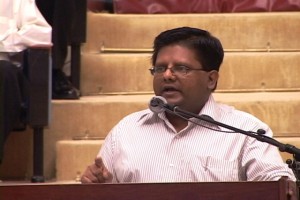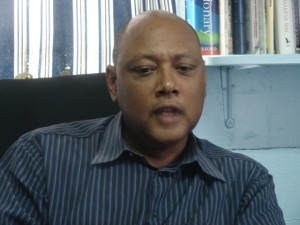– House Speaker warns of constitutional crisis
Speaker of the National Assembly Raphael Trotman said that the grave and gathering danger of a constitutional crisis is looming amid a flurry of court motions by the government questioning “the legitimate decision of the National Assembly”.
Trotman’s statements come one day after the administration moved to the High Court asking for the restoration of some Gy$20 billion chopped from the budget.
“The continued resort to the High Court to question legitimate decisions of the National Assembly, points to the grave and gathering danger of a constitutional crisis, which has the potential to assume proportions, the like of which the nation has never seen and may be unable to handle,” Trotman warned in a statement to the media.
He quoted Article 51 of the Constitution of Guyana which states: “There shall be a Parliament of Guyana, which shall consist of the president and the National Assembly”. Trotman said it is pellucid that the various branches of government were meant to work in consonance, and not in conflict, with each other.
“These challenges, in my humble opinion, are as unnatural and unhealthy as they are unconstitutional, and will weaken the already fragile fabric of our constitutional democracy. Despite the government’s seeming abhorrence to negotiations, it is still being suggested that these are the best means to resolving our political differences,” Trotman stated.

He said the latest High Court action brings into question, and possible derision, the very constitutional pillars upon which the country’s democracy is founded, as it strangely asserts that the timeless, sacred, and sacrosanct function of the National Assembly to approve public spending is only perfunctory.
“I am confident that a properly constituted, informed, and unfettered constitutional court will strike down the requests of the claimant, the Attorney General, Anil Nandlall.
“Because of the supremacy of the rule of law, and not of diktat, there will be no comments on the merits or demerits of individual allegations and statements made, and suffice to say that the latest action will have to be stoutly defended as this must be seen as the constitutional and public duty of every Member of Parliament.” Trotman said while the matter ensues, and without prejudice to its outcome, the constituent parties of the National Assembly are urged to meet and sort out the issues that continue to beset the 10th Parliament.





Comments are closed.